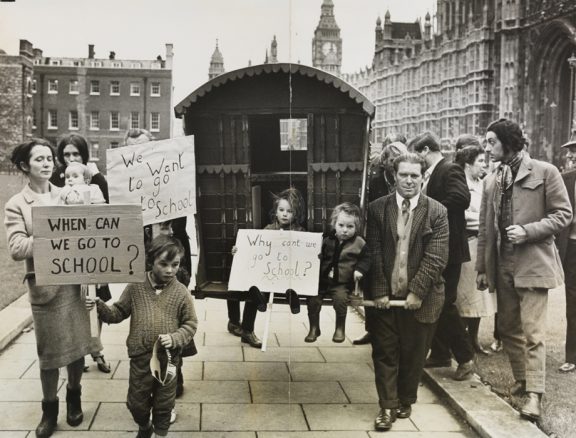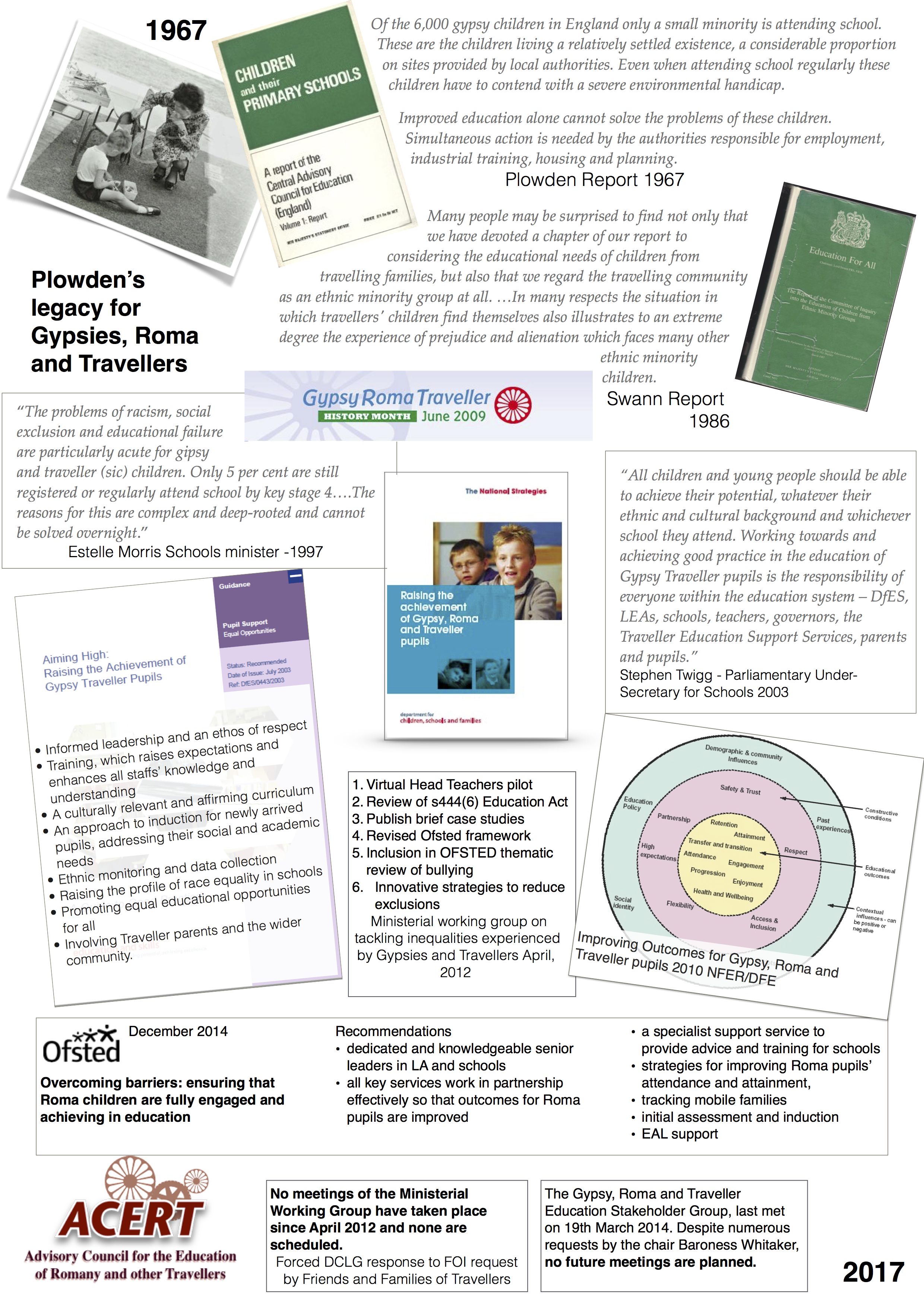Don’t miss out; places are going fast.
The conference is free and there will be a snack lunch for those who book.
The Legacy of Plowden
ACERT mini-conference and 2017 AGM
23rd September 2017
50 years ago a report into Primary Education recognised that most Gypsies and Traveller children were not getting into school, and those who did, weren’t being treated well. Campaigners for Traveller Rights had made submissions to the enquiry, and after it was published used it to raise awareness and campaign for the education and other rights of the communities.
To celebrate the anniversary, ACERT’s 2017 mini-Conference and AGM will review what has, and has not, been achieved, and where we can go from here. Over the past few year, ACERT conferences have been interesting and enjoyable events, with the voices of community members to the fore; we believe this year’s will continue in this vein. Please come and share the day with us.
10:00am – 4:00pm
Waldo Williams Suite
FRIENDS MEETING HOUSE
173-7 Euston Road
London NW1 2BJ

Speakers & artists
Rose McCarthy, Brian Foster, Arthur Ivatts, Emma Johnson, Kelly Buckley, Kealey Sly, Besty Mobey, Screening of Hotchi by Jason Smith, Shelby Holmes, Bobby Rostas, Sapphire Grey, Ruby Smith, Jozeph Sadowski & Valdemar Kalinin, Christina Broadway, Rose McCarthy (Junior), Lisa Smith, Performance by Thomas McCarthy
Stalls
Bookstall, Travellers’ Times, Roma history exhibition, Porajmos exhibition, Friends, Families and Travellers .
These are provisional lists; check the website for updates. If you would like to participate let us please contact us.
We expect this to be a very special event and hope you will join us.



